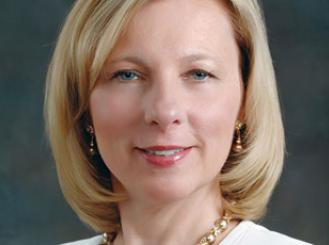Apr 27, 2015
Oncologists today are faced with a host of questions: Should my practice stay independent or consolidate? What would be the impact of a new payment model on my practice and my patients? How can my practice best comply with new reporting requirements? What steps should I take to become a medical home? And which new financial and health care policy changes should I expect this coming year?
ASCO has launched a new department, Clinical Affairs, to help answer these questions and to provide practices with the resources needed to thrive in today’s changing environment. The new department will offer guidance in managing day-to-day activities, such as negotiating with payers, implementing quality requirements, improving business efficiencies, and participating in clinical research.
Robin Zon, MD, FACP, FASCO, Chair of the Clinical Practice Committee and an oncologist at Michiana Hematology Oncology, explained the genesis of the new department and how it will benefit ASCO members: “ASCO has been hearing from its members, especially over the past decade, that there has been high volatility and a rapid escalation of changes surrounding the practice environment. And whether you are in communitybased practice, a hospital-affiliated practice, or an academic institution, there are some cross-cutting themes for all oncologists that are affecting our capacity to care for our patients. The goal of Clinical Affairs is to help keep business operations open amid these multiple economic and structural pressures.”
The new department’s areas of focus
Clinical Affairs will focus on three major areas:
- Data collection and analysis: Clinical Affairs will actively collect data on the health care market, identify trends, forecast future changes, and carry out payment reform pilots, with the goal of giving doctors the knowledge they need to prepare for the challenges ahead.
- Performance and quality improvement: Practices face requirements from both the federal government and commercial payers to meet quality metrics; in many cases, doctors’ reimbursement is based on quality scores, which are used as indicators for performance and value. The Clinical Affairs department will not only help doctors understand these quality programs, but will also offer tools and templates for measuring performance, identifying gaps, and planning ahead for upcoming requirements.
- Day-to-day practice management: Resources provided by the department will also help doctors carry out the nuts-and-bolts activities involved in running a medical practice, from office management to negotiating contracts with payers.
Whereas most of the tools and resources from Clinical Affairs are designed to meet the needs of a broad range of practices, the department also has future plans to provide tailored, individual expertise through a consulting program.
Improving services through member feedback
Dr. Zon said the department will function in a dynamic fashion, soliciting and incorporating feedback from ASCO members, the Clinical Practice Committee, the State Affiliate Council, and experienced staff.
“This department will exist for—and be driven by—practicing oncologists,” said Dr. Zon. “Their feedback will be used to help shape the initial services and programs to assist practices in remaining sustainable and enable them to improve in areas where necessary.”
“The point is—we want to help our practices, regardless of practice setting, to meet the needs and demands of the changing oncology landscape.”


